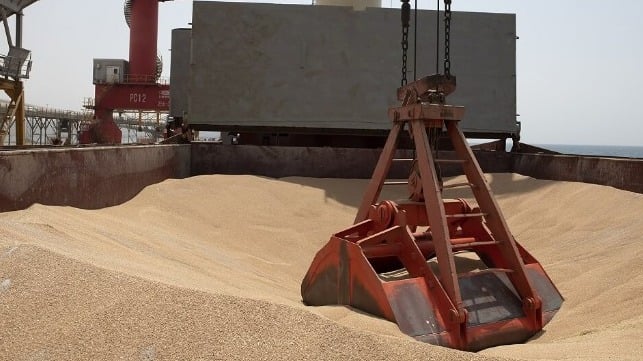IMF: War in Ukraine is Contributing to a Global Food Price Shock
The Black Sea grain corridor is helping, but prices are still at historic highs - and vulnerable nations are most affected

The war in Ukraine is contributing to a food price shock around the world, especially in low-income nations most vulnerable to rising prices, according to the International Monetary Fund.
The war is one of many crises which have reduced food production and increased prices over the past several years, including climate-driven severe weather events and the COVID-19 pandemic. When Russia launched its invasion in February, the situation grew worse: Russia's clampdown on Ukrainain grain export reduced the availability of wheat and corn, while sanctions on Russia's financial institutions left buyers of Russian fertilizer and agricultural products wary of doing business.
This has caused the global food price index to spike by nearly 50 percent when compared to 2014-16. Less affordable food has increased the number of people who face food insecurity. Around the world, nearly 830 million people now go to bed hungry every night, according to the World Food Programme, and an "unprecedented" 345 million face acute food insecurity.
48 nations are particularly exposed, the IMF said. Most are low-income and are more vulnerable to rising prices. The overwhelming majority are in subsaharan Africa, and many have a historical dependence on Ukrainian grain imports. Ukraine was also the largest single supplier of grain for the World Food Programme before the war, and it only resumed limited shipments for WFP cargoes in August when the Black Sea grain initiative began; including all commercial shipments, the corridor has allowed the export of more than seven million tonnes of grain since it opened, helping to bring prices down somewhat over the past two months.

that matters most
Get the latest maritime news delivered to your inbox daily.
Ukraine's agricultural production is expected to fall 25-40 percent this year, leaving less available to export even if its grain shipping corridor is renewed or expanded - and neither are guaranteed. The corridor is up for renewal in late November, and Ukrainian officials have signaled that they expect renewal negotiations to be touch-and-go right up to the last minute.
The IMF cautions that high prices will have an impact on balance of payments in vulnerable nations, to the tune of about $9 billion in 2022-3. The agency estimates that highly exposed countries need as much as $7 billion in aid for the poorest households in 2022 alone.
